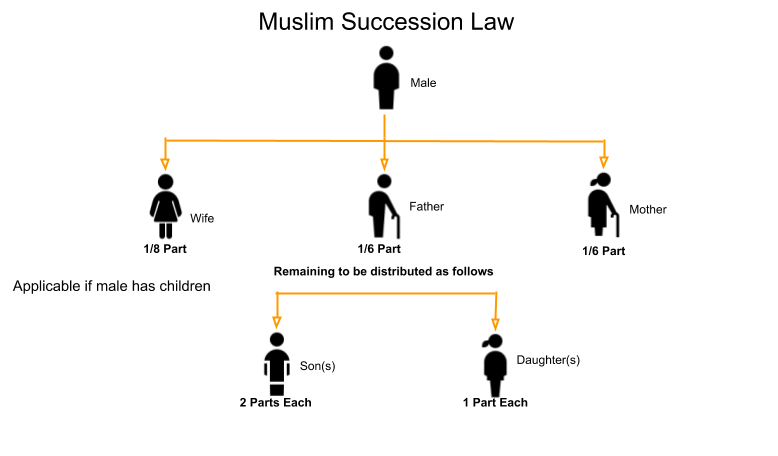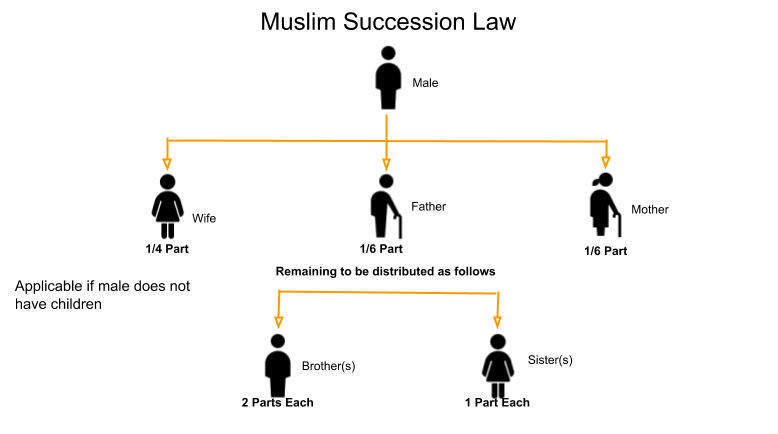Succession Laws
Hindu Religion
A. Hindu Female
According to Section 15 of Hindu Succession Act, 1956, the following persons will be entitled to the share in the property in case of a Hindu female dying intestate:
- Firstly, the sons and the daughters (which includes the children of the predeceased son or daughter) and her husband.
- Secondly, if the sons, daughters, and the husband are no more, the husband’s heirs are entitled to the entire property.
- Thirdly, if the husband’s heirs are no more then, then the female’s mother and father will be entitled to her property.
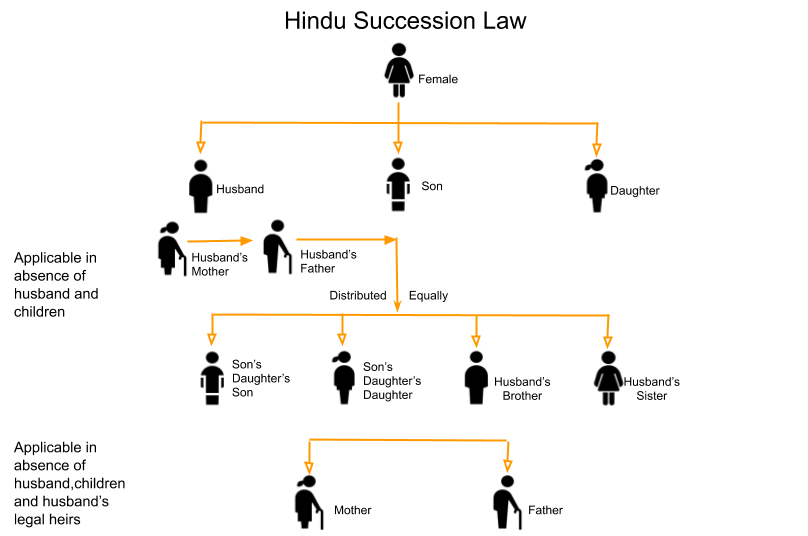
B. Hindu Male
According to Section 8 of the Hindu Succession Act, 1956, the following persons will be entitled to the share in the property in case of a Hindu male dying intestate:
- The class I heirs consist of wife, son, daughter, and the mother all are entitled to equal share in the property.
- Heirs mentioned in class II are only entitled to a share if heirs mentioned in class I are not present. The father is the first entry in class II heir and he is entitled to entire property. If the father is not present, the property will be distributed equally among the son’s daughter’s son, son’s daughter’s daughter, brother, and sister.
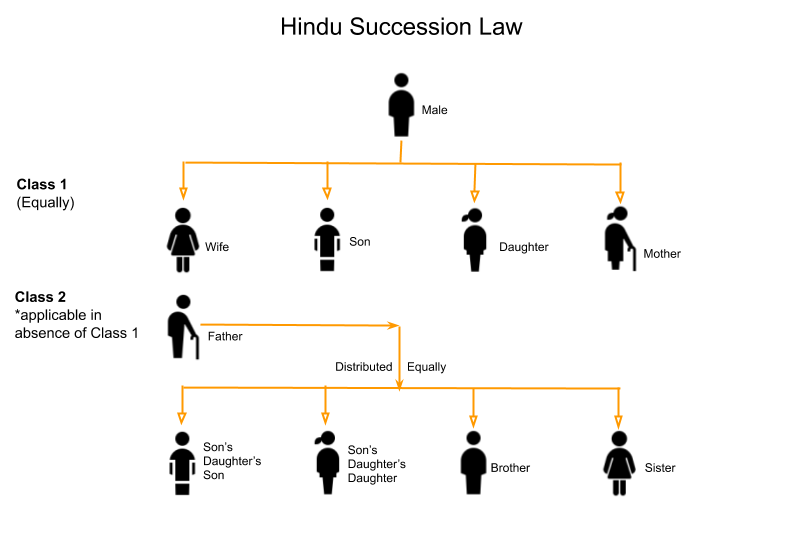
Muslim Religion
A. Muslim Female
The succession laws for a Muslim male or female dying intestate are governed by the Muslim Personal Law (Shariat) Application Act, 1937.
When a Muslim female dies intestate, her husband is entitled to 1/4th of the share of the property and the father and mother are entitled to 1/6th share each. The remaining share is distributed in such a manner that the daughter(s) is entitled to a share half of that of the son(s).
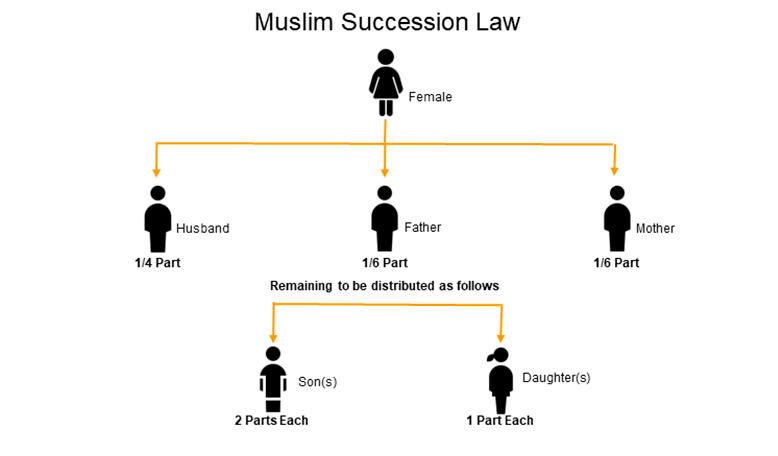
B. Muslim Male
- When a Muslim male dies intestate, leaving behind his wife, children, and parents, then in such a case, his widow is entitled to 1/8th of the share of the property and the father and mother are entitled to 1/6th share each. The remaining share is distributed in such a manner that a daughter(s) is entitled to a share half of that of a son(s).
- In case of a Muslim male dying intestate, leaving behind his wife and parents, but no children, then in such a case, his widow is entitled to 1/4th of the share of the property and the father and mother are entitled to 1/6th share each. The remaining share shall devolve upon the brother(s) and sister(s) in such a manner that the sister (s) are entitled to a share half of that of a brother(s).
Christian Religion
Christian Law
As per Section 33 of the Indian Succession Act, 1925, in case of a Christian male/female dying intestate, broadly the following rules are applied:
- When a Christian die’s leaving the widow/widower as well as lineal descendants – the widow/widower is entitled to 1/3rd of the share and the remaining 2/3rd is shared equally by the lineal descendants.
- When a Christian die’s leaving only the widow/widower and no lineal descendants but some people who are kindred to the deceased – the widow/widower is entitled to half of the share and the remaining half is shared equally by the kindred.
- When a Christian die’s leaving only the widow/widower but no lineal descendants or kindred – the widow/widower is entitled to the entire property.
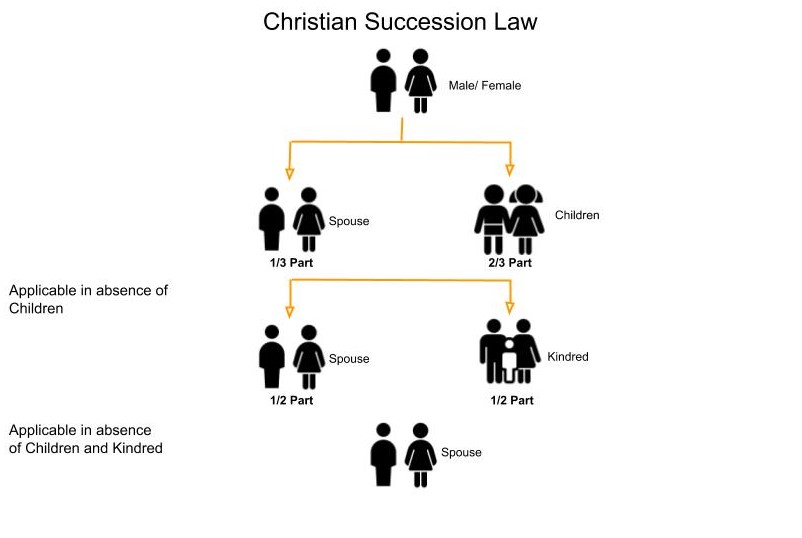
Parsi Religion
Parsi Succession
As per Section 51 of the Indian Succession Act, 1925, in case of a Parsi male/female dying intestate, broadly, the following rules are applied:
- When a Parsi dies leaving behind a widow or widower and children, but no parent/s – Each child and widow or widower will receive equal shares.
- When a Parsi dies leaving behind only children, no widow/widower, no parent/s - the shares are divided equally among the children.
- When a Parsi dies leaving behind one or both parents, along with children and widow/widower – The widow or widower and the children each shall receive equal share and the parent, or both the parents shall receive half the share of each child.
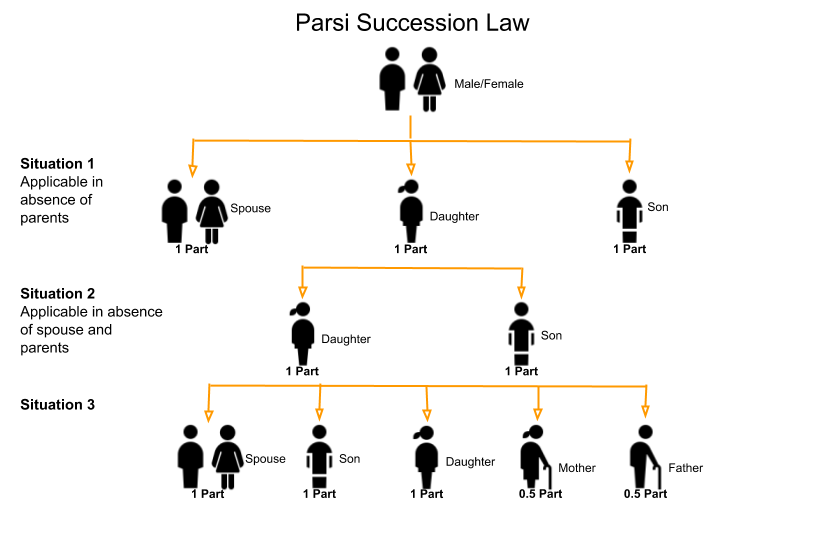
Get in touch
Request a Call
Let's Talk Business
Corporate Office
102-A, 1st Floor, Hallmark Business Plaza,
Gurunanak Hospital Road, Bandra East,
Mumbai, Maharashtra 400051

